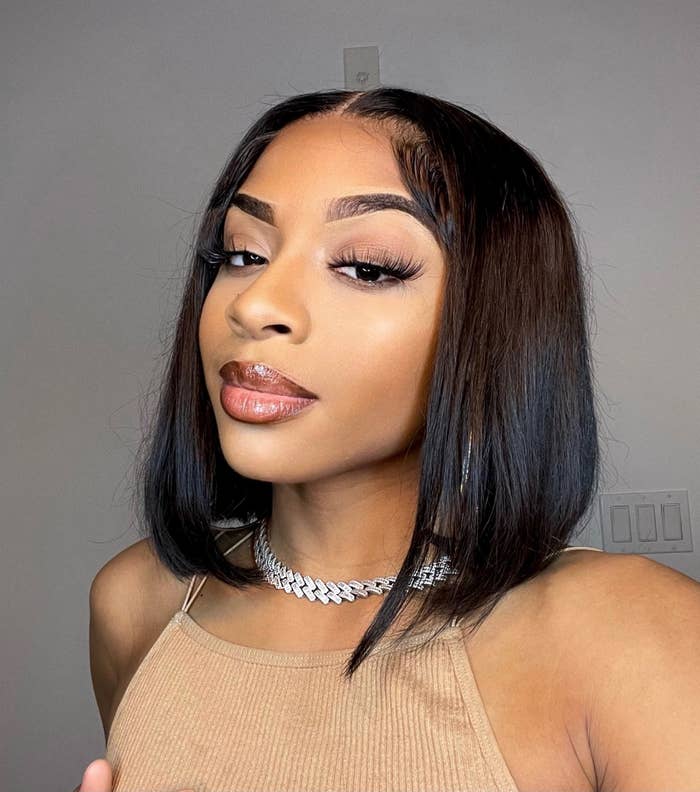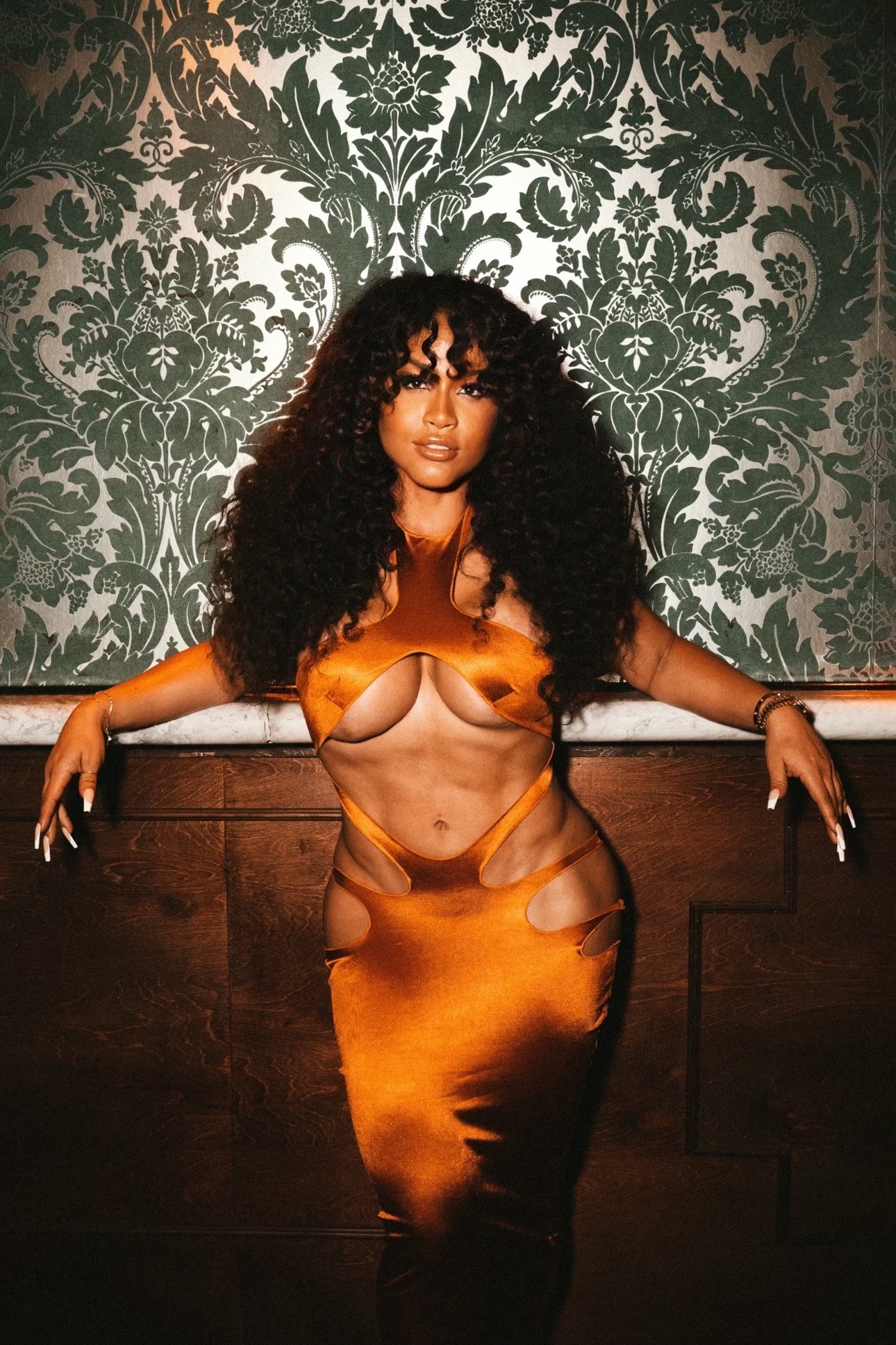The first time Korn Kernal tried OnlyFans, she only stuck around for a month.
She joined the platform as the site’s popularity ballooned early in the pandemic, posting bikini and lingerie photos similar to what she’d been putting up on Instagram.
But on OnlyFans, she said, fans were looking for more. And some followers used the tipping system, which allows subscribers to send extra money to creators, to try to manipulate her into posting nudity and explicit sexual content, she said.
“I would have somebody tip me $20, and expect me to send a video of myself like fingerbanging myself,” she said. “They felt like because they tipped me that money I owed that to them. They’re like, ‘Well, I paid to be here, you’re not doing enough.’ When it’s like, what is enough? What I’m comfortable with?”
She quit, she said, because the experience made her “super sad.”
After building a massive audience in recent years as a destination for porn, OnlyFans has pushed to move beyond its reputation, courting mainstream creators, promoting accounts like musicians and fitness influencers, and even going so far as to briefly jettison explicit content, saying that banks had objected to it, before swiftly reversing course last August. But the expectations OnlyFans established during its rise to popularity have remained in place, and creators of all stripes say that trying to set boundaries with fans exposes them to harassment. Despite facing that pressure from site users, creators said they believed that the company’s moderation features are more focused on policing their behavior than on protecting them from abusive fans. Five told BuzzFeed News that they felt forced to choose between accepting requests they are uncomfortable with and alienating users whose tips pay their bills.
“They’re always going to ask until they get what they want. And, if they do get what they want, they’re going to ask for more rated R content,” said Karina Castillo, who runs her own account and also works as a digital assistant for five creators, helping them take down leaked content, stay on schedule, and respond to messages. Though most of her clients don’t post full nudity, she gets messages asking for masturbation videos or pictures that show nipples. When Castillo says no, she recalled, fans complain: “Oh, well so-and-so did this! You’re on OnlyFans, you’re supposed to be doing this!’”
While online abuse has been a problem for years on all social media platforms, sex workers have often been left out of the conversation. Advocates and researchers said that bans on explicit content have left sex workers, who are often treated as a nuisance to regulate rather than a group in need of support, fearful for their livelihoods and warned that policies like FOSTA-SESTA that lead to crackdowns on sex work online can make it harder for sex workers to support themselves — and ultimately more vulnerable to harassment and pressure from clients.
“Some clients will prey on this increased precarity knowing that because of financial need they may be more successful in pushing a worker’s boundaries,” said Danielle Blunt, a dominatrix and community organizer with Hacking/Hustling, an advocacy organization focused on technology and sex worker rights.
In a statement, OnlyFans said that it uses “proactive moderation and community reporting” to identify and address abuse.
“Creator and fan safety is a top priority for OnlyFans,” said Sophia Bernardi, a spokesperson for OnlyFans. “We have zero-tolerance for harassment of any kind. When abuse is reported, we swiftly investigate and take appropriate action.”
But some creators said they didn’t think the company was doing enough to protect them.
Russell Horning, better known as the Backpack Kid and inventor of the floss dance, got an email from an OnlyFans representative in late 2020 inviting him to join the site and offering to promote any account he made on the company’s social media and website.
Horning is exactly the kind of high-profile influencer that OnlyFans likes to promote. He’s got more than 1 million followers on Instagram, and he’s looking to further monetize his viral fame. Horning, who is now 20 and making fitness and Christian content (he was baptized during the pandemic), gave the site a shot, but like Kernal, quickly called it quits.
“Whenever I promoted it on my TikTok or Instagram, I’d be like, ‘No sexual content, noooooo sexual content. No, no, no sexual content,’” Horning said. “Even in my OnlyFans bio it said ‘no sexual content,’ but they just didn’t believe me.”
Losing brand deals is a common concern for mainstream influencers considering starting an OnlyFans, and Horning said that he did lose a potential sponsorship with Del Taco over his presence on the platform, which contributed to his decision to leave (Del Taco did not respond to a request for comment). But he was also disappointed by his interactions on the platform.
Last month, Horning posted a video on Instagram in which he read DMs from OnlyFans followers and announced his move to Patreon. The messages he’d received include people asking for dick pics, one person asking for pictures of Horning’s feet, and others trying to pressure him into selling explicit content secretly.
“Nothing for tips? Nobody will see,” one message read.
Kaychelle Dabney, a member of Atlanta’s Collab Crib, said she aimed to find a way to make OnlyFans work with her brand. When a YouTube video where she did a “feet for hands challenge” — brushing her hair and locking her car with her feet — took off, she figured OnlyFans might be a good platform to monetize her burgeoning popularity.
“I came to show my feet talents,” she said. “That’s originally what I made the OnlyFans to do, but now it’s like everybody wants, like, sexy oil pics… I thought they just enjoyed my YouTube because it was funny.”

Dabney said she’s started to take videos of her feet in the bathtub, or while she’s lotioning them. She was willing to adjust her expectations for the potential income bump, she said, but she hates feeling pressured to do stuff she’s not comfortable with. “They’ll push you with money. ‘Hey, I’ll send this much, just do this, just do this, oh just do this!’” Dabney said, adding she has gotten offers for hundreds of dollars for custom videos.
Mostly, Dabney said she is able to tell them no and offer an alternative. She won’t wear a thong, but sure, she’ll put on the booty shorts she wears around the house. And sometimes she’ll make a video a little longer, giving the fan a little extra for free, so she doesn’t lose them. But she said a few have unsubscribed and there was one guy she had to block because he got too vulgar. She said that joining OnlyFans has led to harassment on other platforms. People ask her for sex content and send nasty messages on Instagram and Twitter now.
“I never seen anything like this before the OnlyFans started,” she said.
Creators often espouse setting clear boundaries and a personal sense of confidence — knowing why you’re there and being comfortable with potential risks, like family and friends finding out — as a counter to pressure from fans.
Rosa Acosta developed a clear sense of her boundaries from years working as a men’s magazine model and appearing in music videos. “I was already dealing with the stigma that people put on women, good-looking women, women that are around men that are desirable,” Acosta said. She sells things that are sexy but not nude and said that being at ease with the platform is both a matter of mental health and important for creators’ safety.
“If you’re already annoyed with the guys messaging you ‘good morning, beautiful,’ this might not be for you,” she said. “It takes a certain kind of personality to deal with this stuff.”

But setting boundaries isn’t always straightforward, and failing to meet fans’ expectations, however unreasonable, can also escalate to abuse.
Luxiboo, who has worked as a gogo dancer and appeared in videos with Snoop Dogg, Wiz Khalifa, and Frank Ocean, joined OnlyFans in 2018 after talking about it with a porn star friend. At first, she was sharing photos that only suggested she was nude but didn’t reveal anything more than a bikini might. But she has used the platform to explore her sexuality, getting more comfortable with increasingly explicit content over time. For the most part, she said, it’s been a positive experience.
“As I’ve become more curious, more adventurous, with my own personal sexuality, I have delved into more of the performative side of adult stuff,” she said.

Some of her experience on OnlyFans has also been what she calls “trial and lessons” — she doesn’t like the term “error.” One major lesson came from the first video where she had sex with a man on camera.
“I clearly consented to absolutely everything. I felt so comfortable, I had fun shooting it, but viewing it back I was like, This is garbage. I would not buy this. I felt absolutely defeated,” she said.
Luxiboo has discussed the video with friends and her therapist and made peace with the choice, but a clear conscience and a good attitude have not protected her from nasty followers.
“Dumb bitch says subscribe to [OnlyFans] for premium content then you subscribe and get a bunch of emojis over everything you were supposed to pay for,” reads one message that she saved in case it escalated.
Creators said that they have faced abuse for refusing fan requests that could get them into legal trouble, like meeting up for sex and shooting videos outside that would break public lewdness laws.
Morgan Lux, who said she is trying to build a new brand for herself as a mainstream content creator partly because of the harassment she has faced, was propositioned by one follower for $1,000 to meet up in person. After politely refusing twice, in messages she shared with BuzzFeed News, the follower accused her of “sitting on [her] ass” and called her a bitch.
OnlyFans prohibits abuse and harassment, and the platform has functions to report, block, and restrict messages from people who violate those rules. But a BBC investigation showed major gaps in moderation, including one person who said it took six months for the company to respond to death threats, in addition to the presence of minors on the platform and its failure to remove objectionable content.
One reason moderation tools may miss some of the bad behavior is that some creators, like Dabney and Marcela Alonso, say they usually avoid using the reporting functions because they worry about losing out on income.
“I’m kind of just ignoring [some messages]. I feel like I don’t want to keep telling them ‘no’ because they’ll unsubscribe,” Dabney said.
Alonso said that she hesitated to report one fan who got nasty after she refused to reshoot a custom video because he was threatening her with a chargeback — meaning he would dispute the charge on his credit card and ask the card company to reverse the charges — if she didn’t comply. While OnlyFans’ terms of service say the company may delete a fan’s account if they wrongfully demand a chargeback, the cost of a chargeback comes out of the creator’s earnings.
Speaking up about harassment and other issues on the platform can be a double-edged sword. Blunt, the community organizer, said that sex workers especially can be wary of speaking out for fear that their words will be used to introduce greater restrictions that could leave them banned and out of a job.
“Many sex workers are hesitant to speak out about abuse or negative experiences in the sex trades because those shared experiences are often used and misrepresented as reasoning to further criminalize and police our lives and livelihoods,” she said, “rather than as evidence for the need to decriminalize sex work and give folks access to more resources.”
Most of the content creators who spoke to BuzzFeed News for this story pointed out that many fans were reasonable and respectful. Luxiboo said she remembers one fan in particular who was “so emotionally intelligent in regards to boundaries and sex workers. [He said], ‘I’m open for whatever, but whatever you feel comfortable selling, I’ll buy everything.’”
But for others like Lux and Castillo, learning to ignore the comments is a matter of coping with what can seem like an inevitability.
“I think we get kind of numb to it,” Lux said. “We see it and we learn to brush it off… If you focus on every single message that you get, you’re going to be crying for days.”

To protect their mental health, creators have had to find their own solutions, which can often be costly or lead to other problems.
Using digital assistants like Castillo and content management companies is one way for creators to add some distance between the fans and themselves. But these services typically charge a substantial percentage of a creator’s income, and, in some cases, become burdensome in their own right. Creators who use them often fear losing fans if they reveal that they’re not handling the messages themselves, and some say these companies mistreat them too.
Other creators seek support in online chat groups to talk about the issues they face, compare notes, and troubleshoot.
Jazmine Valentine, who created one such group, said it was important to have a place for creators to talk about the issues since abusive messages can impact creators’ mental health and they are often unable to speak to friends and family about the issues. Valentine and Castillo also said they felt that the company just doesn’t take creators’ complaints seriously.
“They’re so concerned with the creators, the way that they’re posting stuff,” Castillo said. “But, I don’t think that abuse is at the top of their concerns when it should be.”
Despite the issues, Blunt said that the platform itself can be a source of safety for some, a space of harm reduction where sex workers can have greater control over their interactions with clients than they would in person.
Researchers Vaughn Hamilton and Elissa Redmiles, who are studying the influx of creators to OnlyFans during the pandemic at the Max Planck Institute, said OnlyFans could also be an improvement over jobs like food service or care work where people may not be able to easily walk away from harassment. Hamilton said that in thinking about harassment as a workplace safety issue, it was also important to consider the opportunities that OnlyFans offered to LGBTQ people who may not be able to come out or transition at other workplaces.
“And then they decide to make an OnlyFans and they can leave their unsafe family or workplace,” Hamilton said.
Others simply say the money is too good to pass up.
After more than a year away, Kernal decided to try OnlyFans again last fall. She’s got a better sense of the issues she might encounter and a clearer idea of what she wants out of it. Mainly, she wants to buy a house. “It’s … just like honestly I’m missing out on this big opportunity to make a lot of money,” she said. “Having OnlyFans gave me the push to do what I wanted.”
